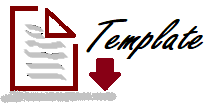MODEL PEMBERDAYAAN IBU RUMAH TANGGA DALAM KOLABORASI PENGELOLAAN SAMPAH DI BANK SAMPAH SIPAKARANNU
(1) Universitas Negeri Makassar
(2) Universitas Negeri Makassar
(*) Corresponding Author
DOI: https://doi.org/10.26858/ugj.v6i2.51007
Abstract
Keywords
Full Text:
PDFReferences
Asteria, D., & Heruman, H. (2016). Bank Sampah sebagai Alternatif Strategi Pengelolaan Sampah Berbasis Masyarakat di Tasikmalaya. Jurnal Manusia dan Lingkungan, 23 (1), 136-141.
Adi., R.I. (2001). Pemberdayaan, Pengembangan Masyarakat dan Intervensi Komunitas. Fakultas Ekonomi UI: Jakarta.
BPS. 2019. Makassar dalam Angka. Biro Pusat Statistik. Jakarta.
KlikHijau. (2022). 5 Fakta Mengapa IRT di Makassar Acuh Pilah Sampah dari Rumah. Dikutip dari https://klikhijau.com/lima-fakta-mengapa-irt-di-makassar-acuh-pilah-sampah-dari-rumah/. Diakses pada tanggal 2 desember 2022.
Mulyono, S. E. (2011). Model Pemberdayaan Masyarakat Miskin melalui Jalur Pendidikan Non Formal di Kecamatan Gajahmungkur Kota Semarang. Jurnal Pendidikan Nonformal dan Pemberdayaan Masyarakat, 3(3), 51-60.
Suharto., E. 2014. Membangun Masyarakat Memberdayakan Masyarakat. Bandung: PT Refika Aditama.
Sufia, R., Sumarmi, & Amirudin, A. (2016). Kearifan Lokal dalam Melestarikan Lingkungan Hidup (Studi Kasus Masyarakat Adat Desa Kemiren Kecamatan Glagah Kabupaten Banyuwangi). Jurnal Pendidikan: Teori, Penelitian dan Pengembangan, 1(4), 726-731.
Yuningsih,S., Sumarni, L., & Yahya, A.S. (2021). Model Pemberdayaan Perempuan Melalui Program Daur Ulang Sampah Plastik Di Wilayah Cilincing Jakarta Utara Pada Masa Pandemi Covid 19. Seminar Nasional Penelitian LPPM UMJ. Banten: 28 Oktober 2021. Hal.1-8.
Zubaedi. (2007). Wacana pembangunan alternative. Yogyakarta: ar-ruzz media.
Article Metrics
Abstract view : 115 times | PDF view : 3 timesRefbacks
- There are currently no refbacks.
Copyright (c) 2023 Firdaus W Suhaeb, Yusrawati Yusrawati Yusrawati

This work is licensed under a Creative Commons Attribution-NonCommercial 4.0 International License.
UNM Geographic Journal is Indexed in
Editorial Office of UNM Geographic Journal:





















